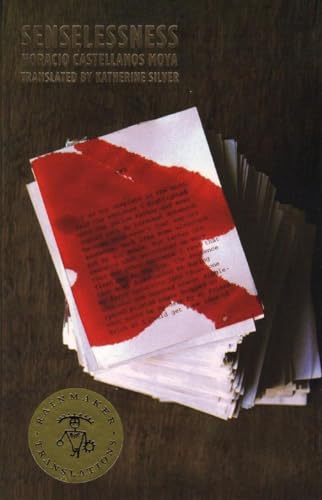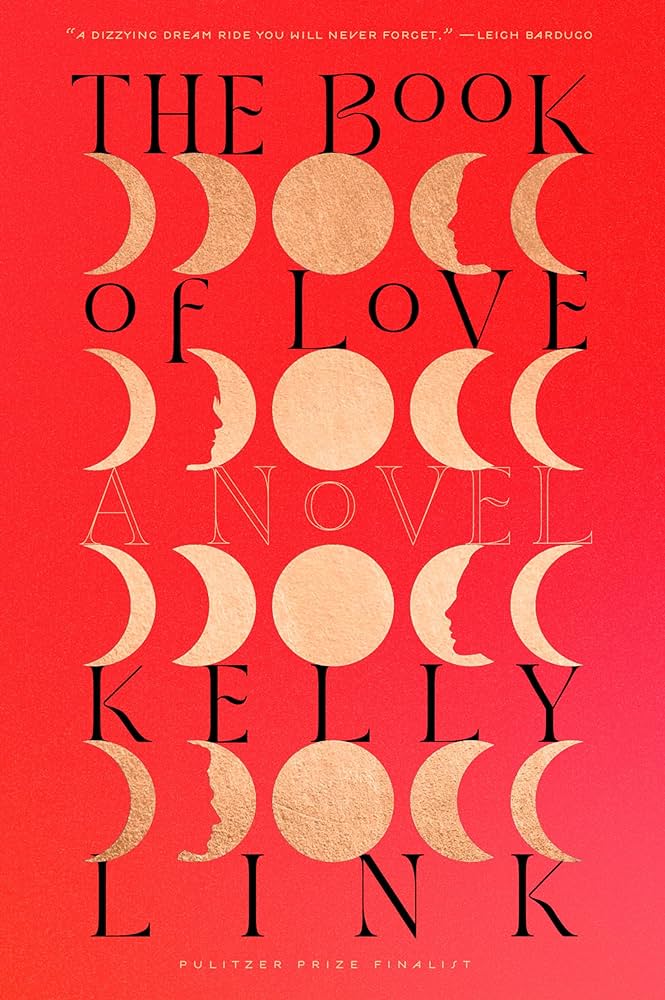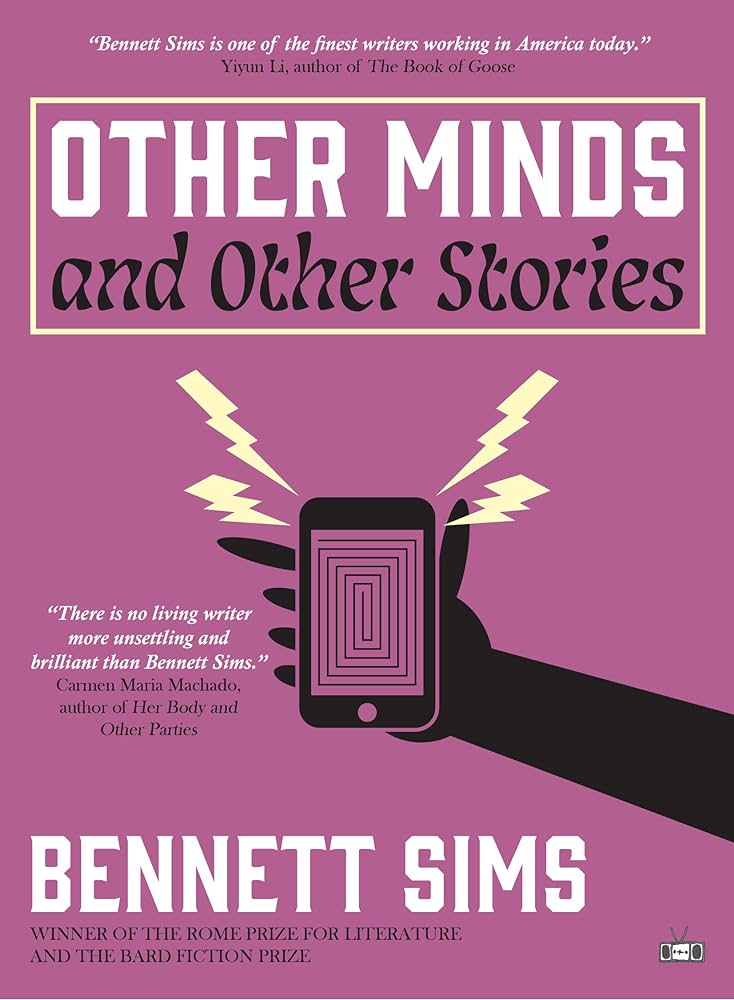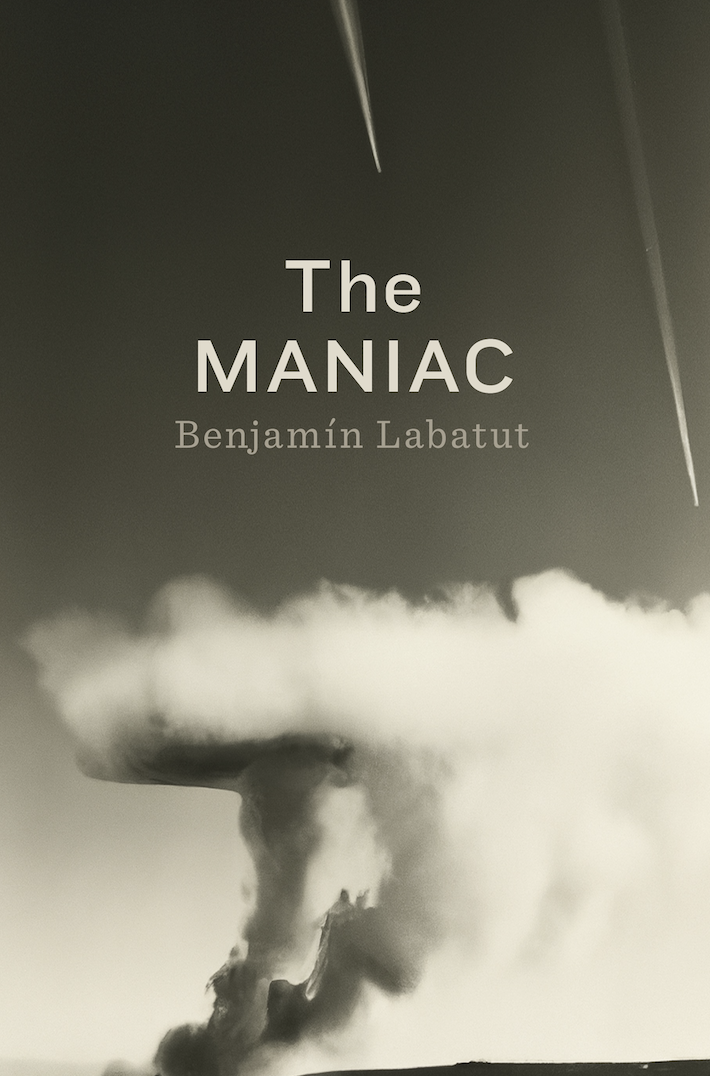
In Horacio Castellanos Moya’s new novel, Erasmo Aragón, a writer in exile from El Salvador, seems to have a good answer to the question of why he is planning on going back to a country that has been fighting an incredibly bloody civil war for 20 years. “Peace,” he says, “could be glimpsed on the not-too-distant horizon.” Also, if he could get healthy, and stop drinking, he might find a girl with a sweet ass, like his wife.
Castellanos Moya is a master of creating narrators who say things so wrong you can’t pick out the worst thing in them. But there is one particularly bizarre delusion in this weird equivalence between politics and posteriors fueling our hero’s many crazy capers in The Dream of My Return. The opportunities available after the conclusion of a 20-year civil war — which was indeed brought to a close in 1992 with a treaty between rebel guerrillas and the national government — just aren’t the same as the opportunity to “radically change my life,” as Erasmo also grandiloquently puts it. But, as in so many of Moya’s novels, politics is taken so personally that peace can’t be thought of any other way. And so these contradictions don’t stop Erasmo from trying his damnedest to push them to their limits in the turns and returns of his screwy psyche.
In fact, his awareness of his bizarre situation only seems to spur him on, and the sheer fun of this novel is in seeing him juggle all this hyperconscious bad faith — Castellanos Moya all the while continuing to pile it on. To begin with, it doesn’t seem to bother Erasmo that peace actually can be glimpsed in the here and now in Mexico City where he lives, with a job at a paper, a wife and a kid, and friends in the community of refugees. He doesn’t mind that in all likelihood he would be alone in a country that, even today, after the peace, is a corrupt, violent den of gangs and killers. Or rather, he does mind, in fact, he throws fits. But his predilection to see his future in the language of self-help, merely makes him the first to admit he’s a self-deluding idiot, a liar, a cheat, an all-around asshole, so that he can continue chasing his dream. Not to mention leave out (to the reader too, often) anything that might disturb his comfortable culpability. You can imagine how bad this gets when, after seeing a doctor for liver problems, he begins to undergo first steps of therapy.
This self-help rhetoric is, of course, not so much the pastime of therapists as of neoliberal North Americans and, since the 1990s, that of many of the reforming governments to the south, too. What Castellanos Moya ruthlessly savages in Erasmo’s use of it is that as much as it talks improvement it remains silent on anything resisting a narrative of change, radical change. There’s a point in the story — it’s after he finds out his wife is cheating on him and has decided the baby she’s having isn’t his, but before he starts making plans to liquidate the two-bit actor with an ex-guerrilla arms-supplier he drinks Bloody Ceasars with who calls himself The Rabbit — that Erasmo drives his wife to get an abortion, and laments the whole time how barbaric it is that Mexico hasn’t made the operation legal. The dark, dark joke here is that El Salvador even today continues to have one of the most backwards abortion laws of any country, and it points to what his doctor tells him: “You refuse to remember almost anything.” The words the doctor uses — conveyed in yet another vivacious translation by Katherine Silver — are as suggestive about the power of his improving monologue as they are precise about the extent of his blindness: anything can come before his vision of the present and future and be forgotten, perhaps not everything but definitely any one thing. “Only the devil himself knows the pathways taken by our self-esteem,” Erasmo admits, and he’s perhaps more right than he thinks he is. He’s trying to leave his life behind, because he is haunted by a past wholly traumatic. It’s because he is improving that he is digging his own grave — and, if he had his stupid way, that of others.
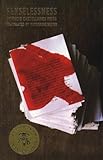 As in his disturbingly hilarious Senselessness, Castellanos Moya doesn’t deny that this past may have actually been traumatic for Erasmo and for many others who lived through the ugly, brutal civil wars. Erasmo’s is indeed a world of violence, one where parents have been shot, relatives cut to pieces; where the Rabbit uses Erasmo’s truck to stash an arms cache that will make its way down to the rebels; where it really is unclear whether Erasmo’s doctor, himself taking a trip down to San Salvador for a few days for a funeral, may not be calling him back because he’s been disappeared. But Castellanos Moya revels in showing that the untraumatic future, the “peace” of which Erasmo speaks, is actually always and forever just “on the horizon,” always just right around the corner, always just far enough away to make it seem like if we want it enough, want it personally, then it will happen. Freedom from violence and the past isn’t the same thing as freedom from our many individual torments, if only because our lives teach us structural problems can’t be ignored. The political isn’t always personal; reform is reform for other people too.
As in his disturbingly hilarious Senselessness, Castellanos Moya doesn’t deny that this past may have actually been traumatic for Erasmo and for many others who lived through the ugly, brutal civil wars. Erasmo’s is indeed a world of violence, one where parents have been shot, relatives cut to pieces; where the Rabbit uses Erasmo’s truck to stash an arms cache that will make its way down to the rebels; where it really is unclear whether Erasmo’s doctor, himself taking a trip down to San Salvador for a few days for a funeral, may not be calling him back because he’s been disappeared. But Castellanos Moya revels in showing that the untraumatic future, the “peace” of which Erasmo speaks, is actually always and forever just “on the horizon,” always just right around the corner, always just far enough away to make it seem like if we want it enough, want it personally, then it will happen. Freedom from violence and the past isn’t the same thing as freedom from our many individual torments, if only because our lives teach us structural problems can’t be ignored. The political isn’t always personal; reform is reform for other people too.
Of course the problem with this is that personally, let alone politically, living and legislating beyond dreams of peace, with the possibility of violence continuing, doesn’t make us any smarter than the people eager for war and continuing violence. As he nears his trip to the airport, Erasmo thinks of a cousin Albertico, who returned to the country during the war in 1980 to fight. When asked why, he responds “because I’m an ass.” The difficult thought for Erasmo, and for us, might be that we may not need any more ass, since we’re all asses already. But then, difficult thoughts aren’t easy to entertain, especially where asses are involved. When he gets to the airport, Erasmo spies a real hottie, a real stunner, a “thoroughbred filly,” and returns to dreaming of “a paradise of sweet asses awaiting me,” as he says, “at my destination.”
Castellanos Moya’s own exile began when he wrote, in the voice of a crusty Thomas Bernhard figure in his 1997 novel El Asco, that “returning to San Salvador always seemed the worst nightmare,” and received death threats which forced him out of the country. For this reason, he has long been a sexy figure for North American readers — who love their Latin American authors sexy, rebellious, engaged with the violence in the region, as he himself recently pointed out about the reception of his friend Roberto Bolaño. But with The Dream of My Return he shows he deserves to be considered one of the most politically instructive of many politically engaged Latin American authors. That he has so explored so many of the problems when a nightmare becomes a mere foolish dream is the true triumph of storytelling over circumstance here, and it is of a kind Erasmo can only dream about.

